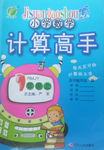题目内容
________ Mary ________ Sue knows nothing about the matter, ________ they didn’t come to school yesterday.
- A.Either; or; because
- B.Both; and; as
- C.Neither; nor; since
- D.Not only; but; for
D
both…and…连接并列主语时,谓语应用复数,由第二个空后的knows可知B项错误;从后面的原因知道昨天她们没来上学,其结果当然是对那事一无所知,因此答案为D项。
both…and…连接并列主语时,谓语应用复数,由第二个空后的knows可知B项错误;从后面的原因知道昨天她们没来上学,其结果当然是对那事一无所知,因此答案为D项。

练习册系列答案
 智能训练练测考系列答案
智能训练练测考系列答案 计算高手系列答案
计算高手系列答案
相关题目